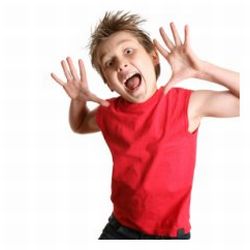Hyperactive Child
A hyperactive child worries parents, gives teachers a headache, and is a common concern parents ask about during office visits.
A diagnosis often attached to a true hyperactive child is attention deficit hyperactivity disorder. Many different behaviors are included in this disorder. It may be caused by a problem with the development of the central nervous system (brain). There may have been a chemical and structural imbalance in the brain that has been exacerbated by the child’s environment. No chemical tests exist to determine the extent of problems in the brain. Psychological screening can help determine if this disorder is present.
Hyperactive children are excessively impulsive. These children have negative attitudes, great emotional up-and-down mood swings, and are difficult to discipline. Negative attitudes result in loss of self-esteem and may lead to behaviors ranging from boastfulness to delinquency. These behaviors complicate the child’s healthy development. Only a minority of these children “outgrow” their symptoms completely or do very well despite their problems. Many are plagued by antisocial behavior patterns, chronic underachievement, problems with substance abuse, and even criminal behavior.
Treatment of this condition has proven to be very difficult. Children do better if they grow up in a stable home environment where adults provide structure and consistency. Discipline must be firm but not physical or verbally abusive. This special approach to discipline must be applied to school and home settings throughout the child’s developing years.
The only chemical treatment that seems to benefit a majority of these children is central nervous system stimulants. There are additional medications that may have beneficial results without requiring a controlled substance prescription. All these medications change the child’s behavior briefly while the medicine is in the system. Side effects may be seen, but they will disappear after the medication is discontinued. Medications alone is not my approach for most children and adolescents without other psychological treatment. My policy is to evaluate whether there are other complicated conditions that provoke symptoms like depression. Most of the dire consequences of Ritalin publicized by the media confuse the side effects of the medication with the symptoms of the disorder. Currently recommendation from professional pediatric societies like the American Academy of Pediatric recommend that one of these medications be considered along with other psychological therapies.
Reviewed 5/1/2024
